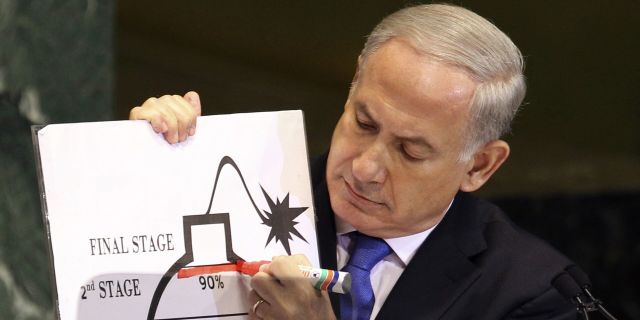President Trump committed a great stupidity when he withdrew from the "nuclear deal" with Iran in 2018, writes Le Figaro. It's not just about Iran. Nuclear ambitions have awakened in Turkey, Saudi Arabia and other Islamic countries. They don't want to wait at the door of the "nuclear club". And it's dangerous.
Renault Girard
It is only now that we understand how counterproductive Trump's decision in 2018 to act alone against Iran and review the "nuclear deal" concluded with Tehran was.
The Vienna International Agreement with Iran of July 14, 2015, proposed by the European Union and then agreed with the Obama administration, was supposed to put an end to nuclear competition in the Middle East. In return for the gradual lifting of sanctions, Iran agreed to stop uranium enrichment and comply with a strict regime of inspections of its nuclear facilities by the IAEA.
The West pursued a triple goal: to calm Israel; to avoid a new preventive war by the United States against an Islamic country on the shores of the Persian Gulf; to prevent a nuclear arms race by major regional powers (Iran, Saudi Arabia, the UAE, Egypt, Turkey).
"Threshold country"
As the Cuban Missile Crisis (1962) convincingly demonstrated, the debate on nuclear weapons remains a very dangerous game. The slightest misunderstanding can provoke a fatal situation. Moreover, the unpredictability — and hence the danger — of any nuclear game grows exponentially with the increase in the number of players. The West and China do not want such a game in the Middle East, the most important region for the energy supply of both Europe and China.
After the signing of the Vienna Agreement (the "Joint Universal Plan of Action" on the nuclear issue in Iran), the Iranians fully implemented it. This was confirmed by four missions of IAEA inspectors. Unfortunately, in 2018, President Trump unilaterally revised the US commitment. The Europeans failed to free Iran from the yoke of sanctions, and the Europeans did not try particularly in this direction.
As a result, the Iranian mullahs ordered the resumption of uranium enrichment. Persia today is a "threshold country": if it also goes for it, it will only have to take one last technological and industrial step to become a military nuclear power. According to Israel, which has been a nuclear power since the 1960s, Iran's acquisition of atomic weapons will be a reason for war.
Unable to ease regional tensions, Saudi Arabia decided to adapt to it. At first, it made attempts to resume relations with the Iranians under the auspices of China (the Beijing Agreement of April 6, 2023). This gave her an immediate advantage and insurance for the future. In response to the human attitude, Iran's actions followed, pushing the Yemeni Houthis (pro-Iranian Shiites) to promise to continue firing missiles at the Saudi infrastructure. Riyadh has received a guarantee from Iran that the territory of Saudi Arabia will not be the target of attacks from Iran in the event of Israel's pre-emptive strikes on Iran.
Then Saudi Arabia decided to resort to the usual flirtation with the Americans. The Biden administration has stopped treating Crown Prince Mohammad bin Salman as an outcast, as Russia's special operation in Ukraine has changed the global energy balance. Secretary Blinken visited Riyadh on June 7-8, 2023 and requested that the Kingdom establish diplomatic relations with Israel. Joe Biden considered that such a diplomatic step could contribute to his election campaign.
In response to this request, Mohammad bin Salman abandoned Riyadh's old demand for immediate recognition by Israel of a Palestinian State on the 1967 borders in favor of a more vague commitment to seek the creation of two States on the territory of mandatory Palestine.
"Islamic bombs"
At the same time, the Crown Prince demanded something in return: for example, the supply of American technologies and equipment needed to create a Saudi nuclear power industry. Alas, it is known that it is not difficult for anyone who masters the civilian nuclear sector to make an atomic bomb. Saudi Arabia, in turn, wants to become a threshold country. The request is the most common, given that Israel has been an atomic power since the 1960s (thanks to France), and already one Muslim country - Pakistan – has owned a nuclear bomb since 1998 with the technical assistance of Beijing and financial assistance from Riyadh.
Saudi Arabia has told the Americans that if they delay responding to its request for nuclear technology, it will always have the opportunity to turn to the Chinese… With the re-election of Erdogan on May 28, 2023, the possibility of developing Turkey's nuclear program again appeared. In 2019, in the Anatolian city of Sivas, the Turkish president said: "Some countries have missiles with nuclear warheads, why shouldn't we have them? I can't put up with this!"
All this means that the big nuclear game has resumed in the Middle East with renewed vigor. Only now do we realize how counterproductive Trump's decision to act alone against Iran was. Even if this decision was justified by the protection of peace and regional stability.

